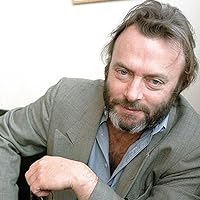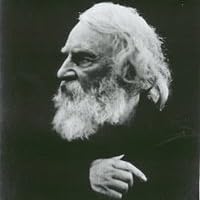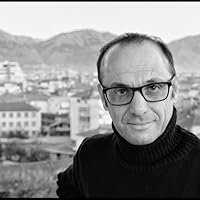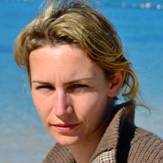Albania Quotes
Quotes tagged as "albania"
Showing 1-30 of 35

“Attempts to locate oneself within history are as natural, and as absurd, as attempts to locate oneself within astronomy. On the day that I was born, 13 April 1949, nineteen senior Nazi officials were convicted at Nuremberg, including Hitler's former envoy to the Vatican, Baron Ernst von Weizsacker, who was found guilty of planning aggression against Czechoslovakia and committing atrocities against the Jewish people. On the same day, the State of Israel celebrated its first Passover seder and the United Nations, still meeting in those days at Flushing Meadow in Queens, voted to consider the Jewish state's application for membership. In Damascus, eleven newspapers were closed by the regime of General Hosni Zayim. In America, the National Committee on Alcoholism announced an upcoming 'A-Day' under the non-uplifting slogan: 'You can drink—help the alcoholic who can't.' ('Can't'?) The International Court of Justice at The Hague ruled in favor of Britain in the Corfu Channel dispute with Albania. At the UN, Soviet Foreign Minister Andrei Gromyko denounced the newly formed NATO alliance as a tool for aggression against the USSR. The rising Chinese Communists, under a man then known to Western readership as Mao Tze-Tung, announced a limited willingness to bargain with the still-existing Chinese government in a city then known to the outside world as 'Peiping.'
All this was unknown to me as I nuzzled my mother's breast for the first time, and would certainly have happened in just the same way if I had not been born at all, or even conceived. One of the newspaper astrologists for that day addressed those whose birthday it was:
Sage counsel no doubt, which I wish I had imbibed with that same maternal lactation, but impartially offered also to the many people born on that day who were also destined to die on it.”
― Hitch 22: A Memoir
All this was unknown to me as I nuzzled my mother's breast for the first time, and would certainly have happened in just the same way if I had not been born at all, or even conceived. One of the newspaper astrologists for that day addressed those whose birthday it was:
There are powerful rays from the planet Mars, the war god, in your horoscope for your coming year, and this always means a chance to battle if you want to take it up. Try to avoid such disturbances where women relatives or friends are concerned, because the outlook for victory upon your part in such circumstances is rather dark. If you must fight, pick a man!
Sage counsel no doubt, which I wish I had imbibed with that same maternal lactation, but impartially offered also to the many people born on that day who were also destined to die on it.”
― Hitch 22: A Memoir

“Even if we have to go without bread, we Albanians do not violate principles. We do not betray Marxism - Leninism.”
―
―

“Poetry
Poetry,
How did you find your way to me?
My mother does not know Albanian well,
She writes letters like Aragon, without commas and periods,
My father roamed the seas in his youth,
But you have come,
Walking down the pavement of my quiet city of stone,
And knocked timidly at the door of my three-storey house,
At Number 16.
There are many things I have loved and hated in life,
For many a problem I have been an 'open city',
But anyway...
Like a young man returning home late at night,
Exhausted and broken by his nocturnal wanderings,
Here too am I, returning to you,
Worn out after another escapade.
And you,
Not holding my infidelity against me,
Stroke my hair tenderly,
My last stop,
Poetry.”
―
Poetry,
How did you find your way to me?
My mother does not know Albanian well,
She writes letters like Aragon, without commas and periods,
My father roamed the seas in his youth,
But you have come,
Walking down the pavement of my quiet city of stone,
And knocked timidly at the door of my three-storey house,
At Number 16.
There are many things I have loved and hated in life,
For many a problem I have been an 'open city',
But anyway...
Like a young man returning home late at night,
Exhausted and broken by his nocturnal wanderings,
Here too am I, returning to you,
Worn out after another escapade.
And you,
Not holding my infidelity against me,
Stroke my hair tenderly,
My last stop,
Poetry.”
―

“Anon from the castle walls
The crescent banner falls,
And the crowd beholds instead,
Like a portent in the sky,
Iskander's banner fly,
The Black Eagle with double head;
And a shout ascends on high,
For men's souls are tired of the Turks,
And their wicked ways and works,
That have made of Ak-Hissar
A city of the plague;
And the loud, exultant cry
That echoes wide and far
Is: "Long live Scanderbeg!”
―
The crescent banner falls,
And the crowd beholds instead,
Like a portent in the sky,
Iskander's banner fly,
The Black Eagle with double head;
And a shout ascends on high,
For men's souls are tired of the Turks,
And their wicked ways and works,
That have made of Ak-Hissar
A city of the plague;
And the loud, exultant cry
That echoes wide and far
Is: "Long live Scanderbeg!”
―
“Përndryshe, në qoftë se shtëpitë botuese mjaftohen të shesin vepra të përkthyera, të cilat janë seleksionuar gjetiu, atëherë kthehemi te muhabeti i free riders; meqë ashtu shtëpitë botuese heqin dorë nga roli i tyre kulturor, duke u mjaftuar me shitjen e qofteve.”
―
―

“Albania’s future is towards Christianity, since it is connected with it culturally, old memories, and its pre-Turkish nostalgia. With the passing of time, the late Islamic religion that came with the Ottomans should evaporate (at first in Albania and then in Kosova), until it will be replaced by Christianity or, to be more exact, Christian culture. Thus from one evil (the prohibition of religion in 1967) goodness will come. The Albanian nation will make a great historical correction that will accelerate its unity with its mother continent: Europe”
― Mëngjeset në Kafe Rostand
― Mëngjeset në Kafe Rostand

“The difference between a communist party and a bourgeois party in State leadership is not a 'minor' one, but a very great, profound, class difference of principle, which cannot be reduced to the 'rotation' of party leaders in political power”
― Yugoslav "Self-Administration" - Capitalist Theory and Practice
― Yugoslav "Self-Administration" - Capitalist Theory and Practice

“Essere uomo ha i suoi vantaggi. Fai poco o niente. Sono le donne che lavorano. Gli uomini, sopratutto quando c’è la neve, oziano. Danno ordini, bevono e puliscono i fucili. O li usano. Ci sono stati molti morti ammazzati, da quando in Albania è arrivata la libertà.”
― Sworn Virgin
― Sworn Virgin

“Bo partia znaczyła więcej niż Bóg, Bóg nie istniał. A nawet jeśli istniał, to był wszechmocny tylko w teorii, a patia była wszechmocna w praktyce. Bóg nie potrafił zniszczyć partii, ale partia potrafiła zniszczyć Boga.”
― Błoto słodsze niż miód. Głosy komunistycznej Albanii
― Błoto słodsze niż miód. Głosy komunistycznej Albanii

“A chipped concrete bunker shaped like an infantryman’s helmet was tilted insolently on a mound at the track’s edge.”
― The Migrant
― The Migrant

“We must fight within the framework of the Republican Constitution,' they say. And the bourgeoisie says, 'Fight as much as you like within the bars of the cage of my Constitution because this does me no harm.”
― Eurocommunism Is Anti-Communism
― Eurocommunism Is Anti-Communism

“Religion mattered at a deep level, which must help to explain why none of these people went over to Islam; but in most cases it did not direct their lives, nor did it prevent some of them from cultivating their connection with a powerful relative who was a Muslim convert. Whilst the fact that they were Catholics from one of Christendom’s frontier zones may have given them an enhanced sense of their Catholicism, the fact that they were Albanians, connected by language, blood and history to Ottoman subjects and Ottoman territory, gave them an ability to see things also from something more like an Ottoman perspective”
― Agents of Empire: Knights, Corsairs, Jesuits and Spies in the Sixteenth-Century Mediterranean World
― Agents of Empire: Knights, Corsairs, Jesuits and Spies in the Sixteenth-Century Mediterranean World

“Pewnego razu zdumieni mieszkańcy Szkodry ujrzeli przy głównej ulicy nowy, zupełnie niezwykły sklep, pełen słodyczy, owoców i od lat niewidzianych smakołyków. Zaraz zebrał się tłum, ale na rozkaz policjantów musiał się rozstąpić, by zrobić miejsce pięknie ubranej kobiecie, która zdecydowanym tonem recytowała w oko kamery: „Oskarżacie nas, że w Albanii nie ma jedzenia. Patrzcie, kłamcy! W Albanii półki są pełne!”. Na potrzeby materiału do lady dopuszczono trzy rozradowane osoby, po czym sklep zamknięto, a tłum rozgoniono.”
― Błoto słodsze niż miód. Głosy komunistycznej Albanii
― Błoto słodsze niż miód. Głosy komunistycznej Albanii

“Albański komunizm był jak twierdza, z której murów codziennie odpadało kilka kamieni. Albo jak podupadła drewniana chałupa z przegniłym dachem, pleśnią na ścianach i zalanymi fundamentami, która, o dziwo, ciągle jeszcze stoi, choć wiatr historii dmucha w jej ściany.”
― Błoto słodsze niż miód. Głosy komunistycznej Albanii
― Błoto słodsze niż miód. Głosy komunistycznej Albanii

“Cierpieć w stopniu znikomym to jakby nie cierpieć wcale, to właściwie poniekąd cieszyć się ze śmierci – zaleca się zatem kilka lat przymusowego odosobnienia, by osobnik reakcyjny mógł w spokoju przemyśleć swoją postawę.”
― Błoto słodsze niż miód. Głosy komunistycznej Albanii
― Błoto słodsze niż miód. Głosy komunistycznej Albanii

“I was just thinking about Byron,’ said Jude. ‘He went to Greece, you know, Athens, during his gap years. A young man doing the grand tour; loved ancient Greece and all it stood for; put it all down in a poetic travelogue, Childe Harold’s Pilgrimage … yeah. There’s a bit about Albania in it too.’ Jude covered his mouth and coughed lightly. ‘“Morn dawns and with it stern Albania’s hills … birds, beasts of prey, and wilder men appear … and gathering storms around, convulse the closing year.”
― The Migrant
― The Migrant

“Although the proletariat in the capitalist states may be dressed in the nylon materials which the 'consumer society' produces, in fact it remains the proletariat.”
― Eurocommunism Is Anti-Communism
― Eurocommunism Is Anti-Communism
“In our country, the welfare of the people is improved, on one hand, by increasing the pay of workers and, on the other, by reducing prices and increasing the funds allocated to free social services like kindergartens, creches, schools, public health and so on.”
― Our Friends Ask...
― Our Friends Ask...
“A Party Central Committee and Government decree stipulates that, as from November 1969, the population will be exempted from all taxation. Thus, the income of the budget will be secured entirely from the socialist sector of our economy.”
― Our Friends Ask...
― Our Friends Ask...

“And what does this apologist of the bourgeoisie have in mind when he talks of the extension of the «dimensions of true freedom» for the workers? Is it the «freedom» to be unemployed, the «freedom» to leave their families and homeland in order to sell the power of their muscles and minds to the capitalists of the Western world, or is it the «freedom» to pay taxes, to be discriminated against and savagely exploited by the old and the new Yugoslav bourgeoisie, as well as by the foreign bourgeoisie?”
― Yugoslav "Self-Administration" - Capitalist Theory and Practice
― Yugoslav "Self-Administration" - Capitalist Theory and Practice

“It was an oblong, two-storey building with crumbling, dirty-red roof tiles and mauve plasterwork on the outside walls that had fallen off in chunks. Across it the faded slogan ‘Long Live the Albanian Communist Party’ was flaking off. It now had a wooden plaque on the door reading ‘Shënomadh Church’: an epitaph for the ideology that had claimed Albania as ‘the world’s first atheist state’, thought Jude.”
― The Silencer
― The Silencer

“The window glass was cold as Jude touched his nose to its surface. He looked north over the centre of Tirana and drank in the thrill of the panorama. From a restaurant in the Sky Tower he could see down over the lush, green square of land criss-crossed with paths that was Rinia Park. He had arranged to meet Edona there at 3pm. To his left the apartment blocks clustered densely away to the horizon in colours of mustard, olive and denim blue. Ahead he could make out the rouge and yellow government ministry buildings on the edge of Skanderbeu Square, and the white needle of the Et’hem Bey Mosque. His eyes turned to the east past the black glass panelled Twin Towers and concrete Pyramid to the traffic flowing up the Gjergj Fishta Boulevard, where the harsh mid-day sunlight was glinting off car roofs and windscreens. Beyond that, through a haze of heat and light smog, Mount Dajti rose up to the blue, utterly cloudless sky.”
― The Migrant
― The Migrant

“The window glass was cold as Jude touched his nose to its surface. He looked north over the centre of Tirana and drank in the thrill of the panorama. From a restaurant in the Sky Tower he could see down over the lush, green square of land criss-crossed with paths that was Rinia Park. He had arranged to meet Edona there at 3pm. To his left the apartment blocks clustered densely away to the horizon in colours of mustard, olive and denim blue. Ahead he could make out the rouge and yellow government ministry buildings on the edge of Skanderbeu Square, and the white needle of the Et’hem Bey Mosque. His eyes turned to the east past the black glass panelled Twin Towers and concrete Pyramid to the traffic flowing up the Gjergj Fishta Boulevard, where the harsh mid-day sunlight was glinting off car roofs and windscreens. Beyond that, through a haze of heat and light smog, Mount Dajti rose up to the blue, utterly cloudless sky. (From 'The Silencer').”
― The Silencer
― The Silencer

“The van’s front window had a knot of cracks in it like a spider’s web, and more cracks striding out to the edges like the creature’s legs.”
― The Silencer
― The Silencer

“Todavía hoy asocio todos nuestros esfuerzos por enterarnos de lo que pasaba en el mundo exterior al nombre de Dajti, la apartada cordillera que rodeaba nuestra capital y dominaba su paisaje como si la hubiese tomado como rehén. Dajti estaba físicamente alejada, aunque siempre la teníamos presente. Nunca fui hasta allí. Todavía no sé qué significaba "recibido desde Dajti"; es decir: quién recibía qué de quién y cómo. Supongo que lo que había allí era un satélite o un repetidor de televisión. Dajti estaba en todos los hogares, en todas las conversaciones y en la mente de todos. "Lo vi anoche a través de Dajti" significaba: "Estuve vivo. Violé la ley. Pude pensar". Durante cinco minutos. Durante una hora. Durante un día entero. Durante el tiempo que Dajti estuvo activo.”
― Free: A Child and a Country at the End of History
― Free: A Child and a Country at the End of History

“The window glass was cold as Jude touched his nose to its surface. He looked north over the centre of Tirana and drank in the thrill of the panorama. From a restaurant in the Sky Tower he could see down over the lush, green square of land criss-crossed with paths that was Rinia Park. He had arranged to meet Edona there at 3pm. To his left the apartment blocks clustered densely away to the horizon in colours of mustard, olive and denim blue. Ahead he could make out the rouge and yellow government ministry buildings on the edge of Skanderbeu Square, and the white needle of the Et’hem Bey Mosque. His eyes turned to the east past the black glass panelled Twin Towers and concrete Pyramid to the traffic flowing up the Gjergj Fishta Boulevard, where the harsh mid-day sunlight was glinting off car roofs and windscreens. Beyond that, through a haze of heat and light smog, Mount Dajti rose up to the blue, utterly cloudless sky. (From 'The Silencer').”
― The Silencer
― The Silencer

“Ja ajo, toka e huaj, tha me vete. Tokë si çdo tokë. Po ajo baltë e zezë si kudo, po ata guralecë midis, po ato rrënjë barërash dhe po ai avull. E, megjithatë, e huaj.”
― The General of the Dead Army
― The General of the Dead Army
All Quotes
|
My Quotes
|
Add A Quote
Browse By Tag
- Love Quotes 98.5k
- Life Quotes 76.5k
- Inspirational Quotes 73.5k
- Humor Quotes 44k
- Philosophy Quotes 30k
- Inspirational Quotes Quotes 27.5k
- God Quotes 26.5k
- Truth Quotes 24k
- Wisdom Quotes 24k
- Romance Quotes 23.5k
- Poetry Quotes 22.5k
- Death Quotes 20k
- Life Lessons Quotes 20k
- Happiness Quotes 19k
- Quotes Quotes 18k
- Faith Quotes 18k
- Hope Quotes 18k
- Inspiration Quotes 17k
- Spirituality Quotes 15k
- Religion Quotes 15k
- Motivational Quotes 15k
- Writing Quotes 15k
- Relationships Quotes 14.5k
- Life Quotes Quotes 14.5k
- Love Quotes Quotes 14.5k
- Success Quotes 13.5k
- Time Quotes 12.5k
- Motivation Quotes 12.5k
- Science Quotes 12k
- Motivational Quotes Quotes 11.5k


